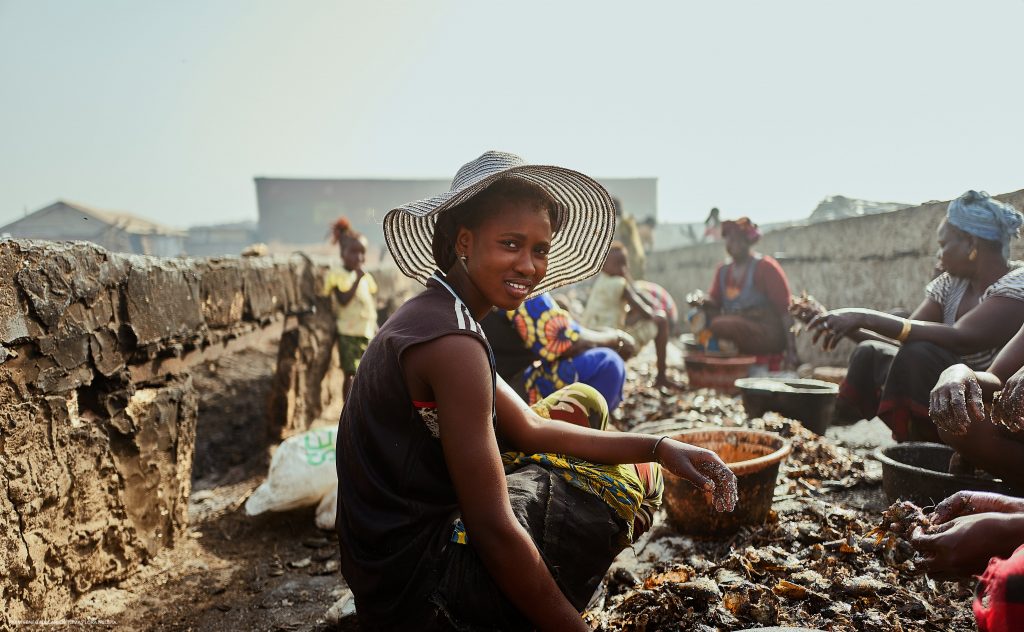What do we need for a gender-sensitive Covid-19 response in agriculture and food security? Insights from research and practice

This seminar organised by the International Food Policy Research Institute (IFPRI) discusses the elements of a gender-sensitive COVID-19 response in agriculture and food security.
Speakers share what they have learned from research on the food price crisis and earlier pandemics; experience and insights from grassroots organizations and NGOs in India and Kenya; and views of funding organizations.
In addition, panellists present an emerging gender research agenda to inform future programmatic and policy responses.
John McDermott
Director, CGIAR Research Program on Agriculture for Nutrition and Health (A4NH), and co-lead, CGIAR COVID-19 Hub
John McDermott joined IFPRI in 2011 to lead the CGIAR Research Program on Agriculture for Nutrition and Health (A4NH), led by IFPRI. Previously he was Deputy Director General and Director of Research at the International Livestock Research Institute (ILRI) in Nairobi from 2003-2011. John has lived and worked in Africa for 25 years.
As a researcher, John’s research career has focused on public health, animal health and livestock research in developing countries, primarily Africa. He has led projects on zoonotic and emerging diseases in Asia and Africa. John has a strong background in quantitative methods (modeling, study design, statistics).
He has earned a PhD in quantitative epidemiology from the University of Guelph, a Masters Degree in Preventive Veterinary Medicine from the University of California – Davis, and a Doctor of Veterinary Medicine from the University of Guelph. During his research career, John authored or co-authored 200 peer-reviewed publications, book chapters and conference papers and has advised over 30 post-graduate students, including 20 PhD graduates. He was a visiting Lecturer at the University of Nairobi and a Professor at the University of Guelph. He has also served as an advisor to FAO, WHO, OIE, and other international agencies, served as a non-executive Director of the Global Alliance for Livestock Vaccines and Medicine (GALVmed), and as a member of the advisory committee of Veterinarians with Borders in Canada.
Agnes Quisumbing
Senior Research Fellow, International Food Policy Research Institute (IFPRI)
Agnes Quisumbing, a senior research fellow, co-leads a research program that examines how closing the gap between men’s and women’s ownership and control of assets may lead to better development outcomes. Her past work at IFPRI analyzed the factors that enable individuals, households, and communities to move out of poverty over the long term, and on how resource allocation within households and families affects the design and outcome of development policies. Her research interests include poverty, gender, property rights, and economic mobility. She led a study on intrahousehold allocation and development policy in Bangladesh, Ethiopia, Guatemala, and South Africa. She has also worked on women’s land rights in Ghana, the Philippines, and Sumatra. She has been involved in longitudinal studies in Bangladesh, Guatemala, and the Philippines, and is currently engaged in impact evaluations of agricultural development programs, focusing on their impacts on gender asset inequality, in South Asia and Sub-Saharan Africa.
A citizen of the Philippines, Quisumbing joined IFPRI in 1995. She received her Ph.D. and M.A. in economics from the University of the Philippines, Quezon City, and her A.B. in economics from De La Salle University in Manila. Before joining IFPRI, Quisumbing worked at the University of the Philippines, Diliman and Los Baños; the World Bank; Yale University; and the International Rice Research Institute.
Claudia Ringler
Deputy Director, Environment and Production Technology Division, International Food Policy Research Institute (IFPRI)
Claudia Ringler was appointed Deputy Division Director of IFPRI’s Environment and Production Technology Division in 2011. From 1996 until her current appointment, she served in various other research positions in that division. She currently co-leads the Institute’s water research program and is also a basin theme leader in the CGIAR Research Program on Water, Land and Ecosystems
Dr. Ringler received her PhD in Agricultural Economics from the Center for Development Research, Bonn University, Germany, and her MA in International and Development Economics from Yale University. Her research interests are water resources management-in particular, river basin modeling for policy analysis and agricultural; and natural resource policy focused at sustainable agricultural productivity growth. Over the last several years she has also undertaken research on the impacts of global warming for developing country agriculture and on appropriate adaptation and mitigation options. Dr. Ringler has field experience across Asia, Sub-Saharan Africa and Latin America. In Asia, she has worked on natural resource management and agricultural technology policy in Bangladesh, Cambodia, China (Yellow River Basin), India, Indonesia, Laos, Pakistan and Vietnam (Dong Nai and Mekong River Basins). In sub-Saharan Africa, she has worked mainly in Ethiopia, Ghana, Kenya and South Africa and on the Limpopo, Nile and Volta River Basins; and in Latin America on Chile (Maipo River Basin) and Brazil (Pirapama Basin). Ringler has been part of a series of Project and Program Advisory and Steering Committees; and International Assessments, such as the Millennium Ecosystem Assessment, the International Assessment of Agricultural Science and Technology for Development, and the UNEP-led GEO-V Assessment. She is currently a member of the Scientific Steering Committee of the Global Water Systems Project (GWSP). Dr. Ringler has more than 80 publications in the areas of water management, global food and water security, natural resource constraints to global food production, and on synergies of climate change adaptation and mitigation.
Meredith Soule
Technical Division Chief, Bureau for Food Security, United States Agency for International Development (USAID)
Laura Zseleczky (moderator)
Program Manager, International Food Policy Research Institute (IFPRI)
Laura Zseleczky is a Program Manager at IFPRI’s Director General’s Office. She supports several institutional activities and initiatives including the annual flagship Global Food Policy Report and Compact2025. Laura also serves as Secretary to IFPRI’s Senior Management Team. Prior to joining IFPRI, she worked with the Women and Gender in International Development Program at Virginia Tech. Laura holds a Master’s of Public and International Affairs and a B.S. in Sociology from Virginia Tech.